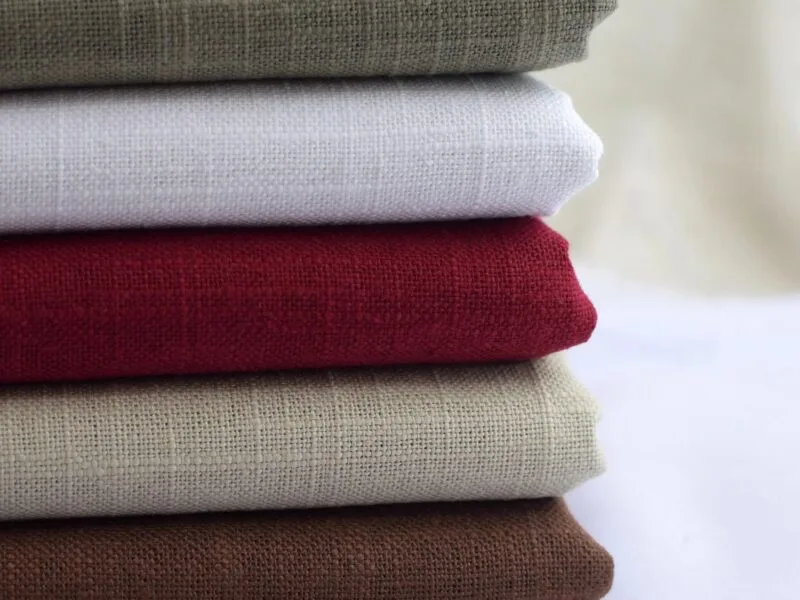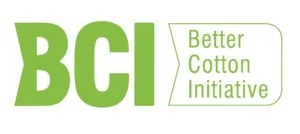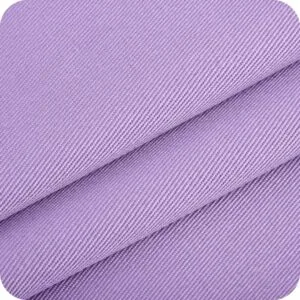
Cotton fabric is one of the most widely used textiles in the world. It is derived from the cotton plant, which has been cultivated for thousands of years. The versatility, breathability, and comfort it offers make it a popular choice for creating a wide variety of garments. However, with the growing awareness of sustainability and environmental issues, there has been a push towards more responsible and eco-friendly cotton production. One way to ensure that cotton is produced sustainably is through the Better Cotton Initiative (BCI) certification. In this article, we will explore what cotton fabric is, the importance of BCI certification, and its benefits and applications, as well as the types of clothing it is best suited for.
Cotton fabric is a natural textile made from the fibers of the cotton plant. These fibers are spun into yarn and woven or knitted into fabric. Cotton has been used for millennia for various purposes, including clothing, household items, and even medical supplies. The fabric is known for its softness, durability, and absorbency, making it one of the most popular materials used in textiles worldwide.
Cotton fabrics are available in a wide range of forms and weaves. The most common types include woven fabrics like denim, broadcloth, and percale, as well as knitted fabrics like jersey and interlock. Each type of cotton fabric has distinct properties, making it suitable for different applications. Cotton is also often blended with other fibers, such as polyester or elastane, to enhance its strength, stretch, or wrinkle resistance.
The Benefits of Cotton Fabric
Cotton fabric offers numerous advantages that make it ideal for various applications. Below are some of its key benefits:
1.Breathability: Cotton is naturally breathable, meaning it allows air to circulate through the fabric. This helps to regulate body temperature, keeping the wearer cool in hot weather and warm in cold conditions. Cotton fabrics are highly absorbent, which means they can draw moisture away from the skin, helping to keep the wearer comfortable and dry.
2.Comfort: Cotton fabrics are soft and gentle against the skin, making them comfortable to wear for long periods. The fibers are smooth, which reduces the risk of irritation and itching, which is why cotton is often recommended for individuals with sensitive skin.
3.Durability: Cotton is a strong fiber, and when properly woven or knitted, it can withstand repeated washing and wear. It is a durable fabric that can last for years, especially when it is made with high-quality cotton fibers.
4.Versatility: Cotton can be used in a variety of textile products, including apparel, bedding, upholstery, and even medical products. Its versatility makes it one of the most popular choices for manufacturers across the globe.
5.Sustainability: Cotton is a renewable resource, making it an environmentally friendly option compared to synthetic fibers like polyester. However, traditional cotton farming can be resource-intensive and environmentally damaging if not managed responsibly.
BCI Certification and Its Importance
The Better Cotton Initiative (BCI) is a global non-profit organization that aims to improve the sustainability of cotton production. The initiative works with farmers, suppliers, and manufacturers to promote more sustainable cotton farming practices, reducing the environmental impact of cotton cultivation. BCI focuses on four main pillars: the reduction of pesticide and water usage, improvement of soil health, promotion of fair labor practices, and support for farmer livelihoods.
BCI certification helps ensure that cotton is grown using environmentally responsible and socially ethical practices. Farmers who are part of the BCI network undergo training and adhere to strict sustainability criteria, which not only protect the environment but also enhance the overall quality of the cotton produced.
By choosing BCI-certified cotton, companies and consumers can help to support a more sustainable cotton industry. This certification provides a way for brands to communicate their commitment to sustainability, and it also enables consumers to make more informed choices when purchasing cotton products.
Cotton fabric is used in a wide range of applications, both in the fashion industry and beyond. Its comfort, breathability, and versatility make it an ideal choice for many different types of clothing and textiles.
1.Apparel: Cotton is commonly used in the production of everyday clothing. Its softness and breathability make it ideal for creating comfortable garments such as t-shirts, shirts, blouses, and dresses. Cotton is also widely used in the production of denim jeans, jackets, and casual wear. Because of its ability to absorb moisture, cotton is perfect for making athletic wear and activewear, as it helps keep the wearer cool and dry.
2.Underwear: Cotton is often used to make underwear and intimate apparel due to its softness, comfort, and moisture-wicking properties. Cotton underwear allows the skin to breathe and reduces the risk of irritation, making it the go-to fabric for many people.
3.Home Textiles: In addition to clothing, cotton is widely used in the production of home textiles, such as bed linens, towels, curtains, and upholstery fabrics. Cotton sheets and towels are highly absorbent and gentle on the skin, making them a popular choice for home use.
4.Medical Textiles: Cotton is commonly used in medical textiles due to its softness and hypoallergenic properties. It is often used in bandages, gauze, and wound dressings, as it is gentle on the skin and highly absorbent.
5.Industrial Applications: Cotton is also used in industrial applications, such as in the manufacturing of ropes, sails, and tents. It is used in these applications because of its strength and durability.
The Role of BCI in Cotton Production
The Better Cotton Initiative (BCI) plays an important role in shaping the future of cotton farming by promoting more sustainable practices. With the increasing demand for environmentally friendly and ethically produced textiles, BCI-certified cotton is gaining popularity among brands and consumers. By working together with farmers, manufacturers, and other stakeholders in the cotton supply chain, BCI is helping to create a more sustainable and responsible cotton industry.
BCI-certified cotton has several advantages, including:
1.Environmental Protection: BCI helps reduce the negative environmental impact of cotton farming by promoting more efficient use of water and pesticides. This helps to preserve natural resources and protect the ecosystems where cotton is grown.
2.Social Responsibility: The BCI certification also promotes fair labor practices and better working conditions for cotton farmers. It ensures that farmers are paid fairly for their work and that their communities benefit from the sustainable practices they adopt.
3.Transparency and Traceability: BCI-certified cotton provides greater transparency in the cotton supply chain. It ensures that the cotton used in textile products is traceable from farm to finished product, helping to provide consumers with confidence that the cotton they are buying is sustainably produced.
4.Better Farmer Livelihoods: By supporting sustainable practices, BCI helps improve the livelihoods of cotton farmers. This includes providing training on better farming practices and offering access to more sustainable markets for their cotton.
Cotton fabric is a staple in the textile industry, providing comfort, durability, and versatility for a wide range of applications. The importance of BCI certification cannot be overstated, as it ensures that cotton is produced in an environmentally sustainable and socially responsible manner. By choosing BCI-certified cotton, both consumers and manufacturers can contribute to a more sustainable future for cotton farming and the textile industry as a whole.
Cotton fabric is ideal for creating a variety of garments, including everyday wear, underwear, activewear, and home textiles. The combination of cotton’s natural qualities and the sustainability of BCI certification makes it a powerful choice for those who are looking to make more responsible purchasing decisions. Whether you are a manufacturer looking to create eco-friendly products or a consumer seeking sustainable cotton apparel, BCI-certified cotton provides the perfect solution.
#cottonfabric #BCIcertification #sustainablefabrics #cottonclothing #textileindustry #sustainablefashion #breathablefabric #eco-friendlytextiles #cottonfarming #fabrics-fty #textile-fty



